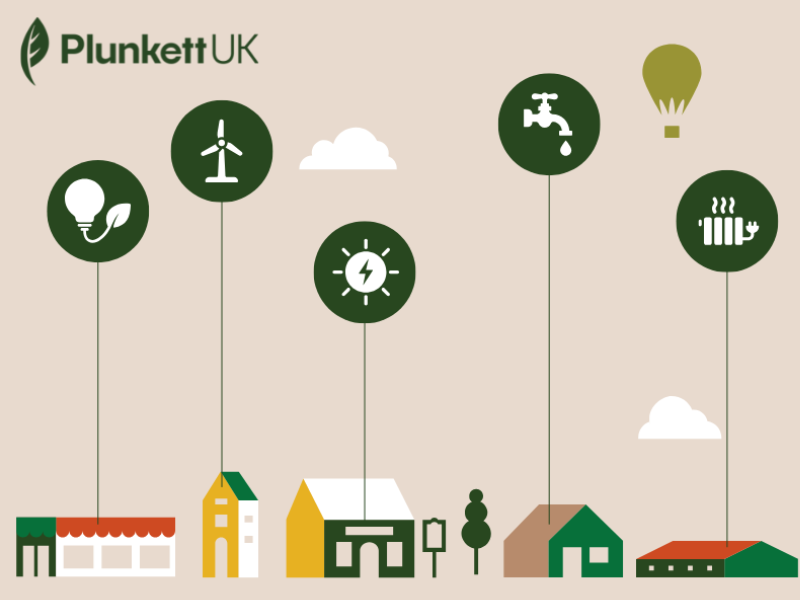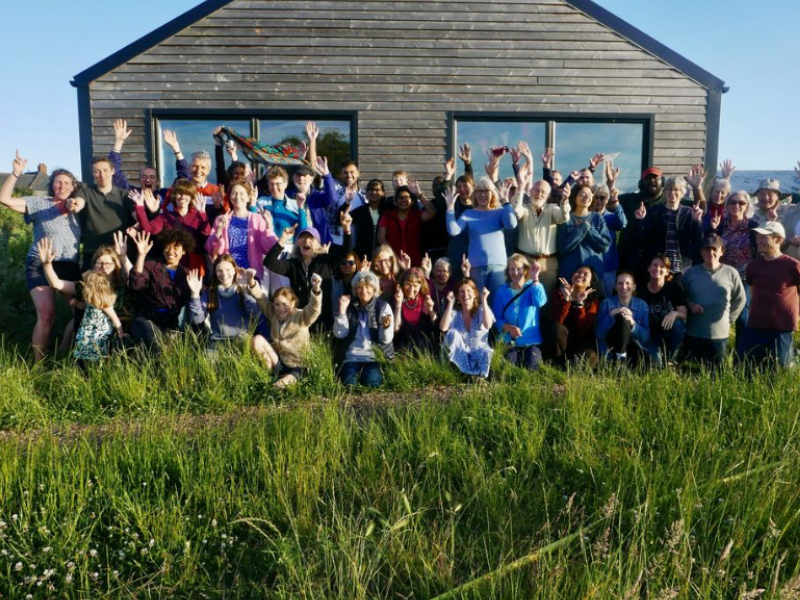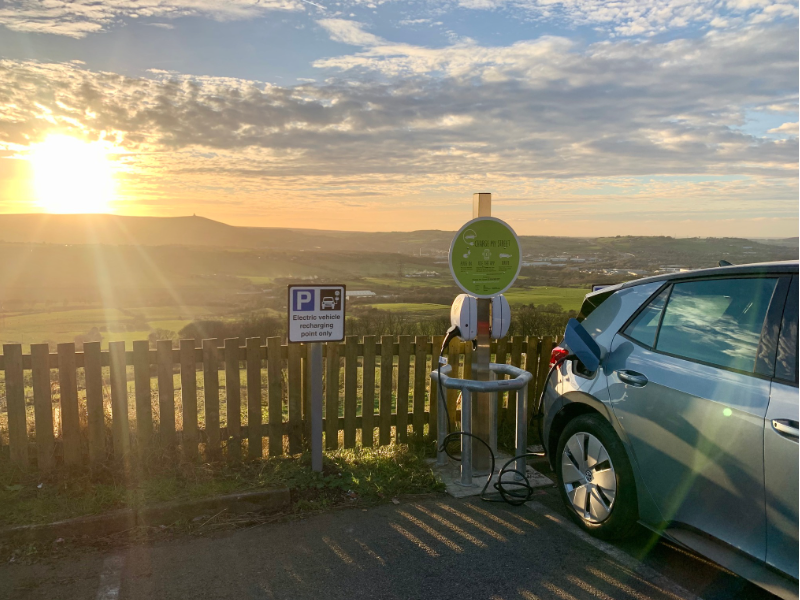Plunkett’s Community Business Manager, Diane Cameron, explores what environmental action means in rural communities

According to our latest Impact Report, 96% of rural community businesses took some form of climate action over the past year. To those of us working at Plunkett, this is no surprise: the interest and proactivity of rural community groups in all things related to sustainability has been remarkable.
The discussions are no longer about why this action should be taken, but how, and how to pay for it. Common sense agrees: environmental actions save community businesses money as well as helping our habitat. From tiny essentials shops in remote villages to big pubs with accommodation in tourist destinations, community businesses are energetically moving to reduce their carbon footprint and make their money go further.
At the beginning of the year, Plunkett held our first ever Environmental Action Special Interest Group (SIG). This small online gathering with guest speakers was open to anyone associated with us who has an interest in climate action – and will be repeated this summer.
We started with a discussion about the triple bottom line (environment, economy ,equity) and watched a short video explaining what this is. It’s easy to see how community ownership balances equity with economy (it’s a democratic and inclusive model after all), but are we also balancing the environment with our trade?
As 85% of community businesses have installed or are considering installing energy saving measures, we’d like to think that they are. But there’s always more to do and as we discussed, we’re all on a journey here, Plunkett included. I was struck at the time by how our attendees had such an eagerness to learn, share their experiences with others, and take concrete actions. I shouldn’t have been surprised: this is typical of the community business sector as a whole.


Volunteers at Sutton Community Farm
At the 2024 AGM, Plunkett members raised questions with our Trustees about where Plunkett’s reserves were invested and how they were managed; whether ethically or sustainably.
In order to instruct the people that manage Plunkett’s investment portfolio on where we want to invest, Plunkett must have an ESG (Environmental Social Governance) policy. We’ve been working on putting this together. We’re also looking at carbon emissions and net zero, using guidance from the Carbon Trust to start measuring our energy and resources use. This work sits with our Finance team, because environmental action is good for our pockets. We’re aware we have a long way to go, but making a start is never a bad thing.
Social prescribing was another topic of discussion at the SIG; we all agreed that there is a crossover between climate action and inclusion, helping people’s mental and physical health by being outdoors and being social. People of all backgrounds and with all sorts of personal characteristics can be involved and once they are, they are likely to bring others with them. This is a great way to expand a community business’ impact and reach, and we all share the benefit of the results.
At The Dog Inn, Belthorn in Lancashire, the field at the rear at the pub is used to plant trees, fruit bushes and wildflowers by volunteers, which increases biodiversity. They’re also using raised beds to grow fruit and vegetables for their restaurant and members of the community. Solar panels have generated 9,356kwh of electricity, resulting in an estimated cost saving for the pub of just under £5,500 since being installed in 2023. Electric vehicle chargers in the pub’s car park have been used over 320 times since being installed four years ago.
Ashwater Village Shop in Devon recycles paper and soft plastic waste by partnering with WHSmith, and reduces food waste via the South West Sandwich Company, which donates products to local food banks. The focus here is making the most of what has already been produced so that the resources used in making it weren’t wasted.
It might be that you don’t think you’re doing anything that matters, and it’s easy to lose heart. But community businesses are changing things: recycling, growing, repairs and alterations, making, local supply chains, composting, community fridges/larders, cooking classes using food saved from waste, growing food, creating wildlife gardens with children/schools/people with dementia, including vegan options on menus and setting up car share schemes.

EV charging point at The Dog Inn Community Pub, Belthorn
Both Ashwater and The Dog Inn were worthy finalists in the ‘Going Green’ category at the Rural Community Business Awards 2025.
Useful Links
What could you do?
Join us at our upcoming Environmental Action Special Interest Group event in an exchange of ideas, experiences, and practical solutions.
It is on Tuesday 30 September at 12:30 – 14:00.
Come along to listen, think and chat in a safe and respectful online space, as we continue our journey discussing what climate action looks like for a rural community business.





